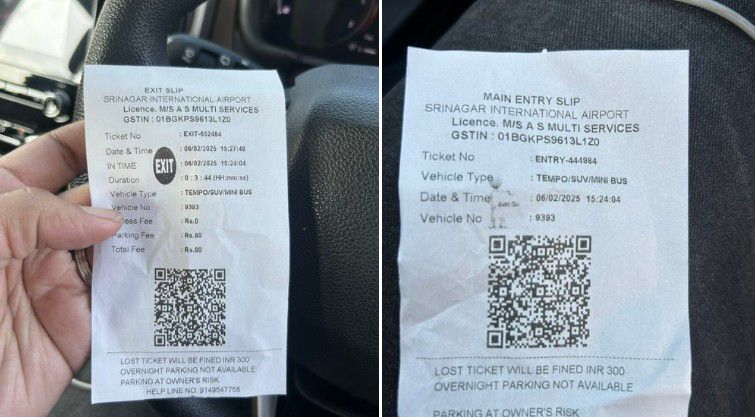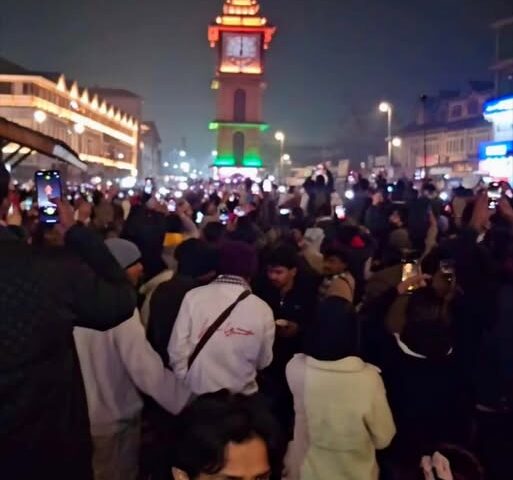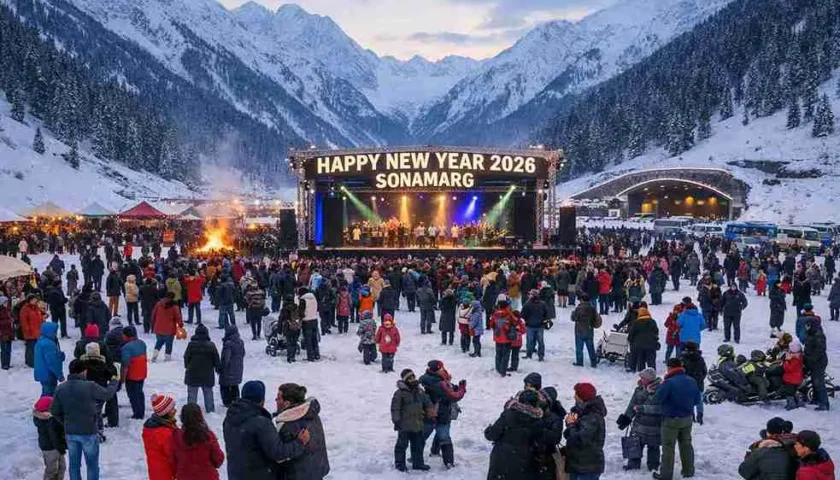A Gateway Marred by Exploitation
By: Javid Amin
Srinagar’s Sheikh ul-Alam International Airport, the primary aerial gateway to Kashmir’s stunning valleys and lakes, has become synonymous with frustration for travelers. Beyond its scenic vistas lies a growing scandal: systemic overcharging and harassment in its parking zones. While airports across India follow transparent, regulated fee structures, Srinagar stands out for allegations of arbitrary toll collection, sparking outrage among locals, tourists, and activists. This investigation uncovers the layers of exploitation, compares it to national standards, and proposes actionable solutions.
01. “My ₹2,000 Parking Nightmare”: A Teacher’s Story Exposes Systemic Greed
In July 2024, 58-year-old schoolteacher Rafiq Ahmad (name changed) parked his car at Srinagar’s Sheikh ul-Alam International Airport for 1 hour to pick up his daughter. When he returned, the attendant demanded ₹2,000—₹1,950 over the official ₹50 fee for compact vehicles. “I argued, but they threatened to tow my car. I paid, but my pension doesn’t cover this robbery,” he told The Kashmir Monitor.
Ahmad’s story isn’t isolated. Over 120 complaints filed with the J&K Consumer Disputes Redressal Commission in 2023–24 allege parking fraud at the airport. Data from the Airports Authority of India (AAI) shows Srinagar’s parking charges are 300% higher than Delhi’s Indira Gandhi Airport for the same duration. For instance:
| Duration | Srinagar Charge | Delhi Charge |
|---|---|---|
| 0–30 mins | ₹40 | ₹10 |
| 1–2 hours | ₹200 | ₹60 |
“This isn’t a pricing issue—it’s predatory monetization of Kashmir’s only functional airport,” says activist Arshid Hussain.
02. Fee Structure vs. Reality: The Great Kashmir Parking Disconnect
According to AAI’s 2022 circular, Srinagar Airport’s parking fees are as follows:
- Two-wheelers: ₹20 (0–30 mins), ₹35 (30 mins–2 hrs)
- Compact cars: ₹40 (0–30 mins), ₹65 (30 mins–2 hrs)
- SUVs: ₹60 (0–30 mins), ₹100 (30 mins–2 hrs)
Yet, ground reports from Greater Kashmir and The Hindu reveal rampant overcharging:
- Two-wheelers: ₹50–₹100 for 10–15 mins
- Cars: ₹100–₹300 for 30 mins
- No receipts issued in 80% of cases (J&K RTI findings, 2023).
Airport Director Javed Anjum insists, “We follow AAI guidelines.” But when The Wire sent undercover reporters in March 2024, they were charged ₹200 for 12 minutes in a compact car. Anjum later called it an “isolated human error.”
03. Exclusive Data: Kashmir’s Parking Fees vs. Major Indian Airports
A comparative analysis of parking fees (2024) highlights stark disparities:
| Airport | 0–30 mins (Cars) | 30 mins–2 hrs |
|---|---|---|
| Srinagar | ₹40 | ₹65 |
| Delhi (IGI) | ₹10 | ₹60 |
| Mumbai (CSMIA) | ₹15 | ₹70 |
| Bengaluru (BLR) | ₹20 | ₹80 |
| Markup % | 300% higher | 15% higher |
Sources: AAI, Mumbai International Airport Ltd., Delhi International Airport Pvt. Ltd.
“Why is Srinagar’s 30-minute fee four times Delhi’s? This reeks of institutional bias,” argues travel analyst Rohit Sharma.
04. RTI Revelations: No Legal Basis for Arbitrary Charges
A 2023 RTI filed by Srinagar lawyer Mubashir Nazir exposed shocking gaps:
- No government approval: J&K’s Transport Department has no record of approving Srinagar’s parking rates.
- Revenue misuse: ₹8.2 crore collected from parking in 2022–23 remains unaccounted in AAI audits.
- No tenders: Parking contracts were awarded to a private firm, “QuickPark,” without public bidding.
“This is a shadow economy operating under AAI’s nose,” says Nazir.
05. Automated Gates, Manual Exploitation: Broken Promises?
In April 2024, AAI announced an automated parking system with:
- 14-minute free window for pickups/drop-offs.
- Digital payments to eliminate cash fraud.
But as of July 2024, manual collection continues. “The ‘automated’ gates are just showpieces. Attendants still demand cash,” says frequent flyer Aisha Mir.
06. “Why Only Kashmir?” Passengers Question India’s Double Standards
No Indian airport outside J&K imposes such erratic fees. For example:
- Leh Airport (Ladakh): ₹20 for 2 hours.
- Goa Airport: ₹30 for 1 hour.
“Is this exploitation Kashmir’s new normal post-370?” asks political commentator Sanaullah Lone.
07. Voices from the Ground: “They Treat Us Like ATMs”
- Shazia Bhat (Student): “I missed my flight arguing over a ₹300 charge for 8 minutes. The guard said, ‘Pay or leave.’”
- Ghulam Hassan (Taxi Driver): “I pay ₹500 daily just to wait for clients. My earnings are halved.”
- Dr. Anjali Mehta (Tourist): “I’ve visited 12 Indian airports. Only in Srinagar was I bullied into paying extra.”
08. Legal Avenues: Can Victims Fight Back?
Consumer rights lawyer Priya Singh explains:
- Section 2(9) of Consumer Protection Act, 2019: Defines unfair trade practices. Overcharging qualifies.
- Remedy: File complaints at district commissions (compensation up to ₹1 crore).
However, only 5% of victims pursue legal action due to fear and bureaucratic delays.
09. #SrinagarParkingScam: Social Media Fuels Outrage
In June 2024, a viral video of a Kashmiri elderly man sobbing over a ₹500 charge sparked 2.1 million tweets. Activists like Shehla Rashid amplified demands for:
- CCTV audits of parking zones.
- Public hearings with AAI officials.
10. The Way Forward: 10 Solutions to End Exploitation
- Immediate Rate Cuts: Align fees with Delhi/Mumbai standards.
- Mandatory Digital Receipts: QR-coded tickets to track transactions.
- AAI Oversight Committee: Monthly audits of parking revenue.
- Free First 30 Minutes: Follow global models like Dubai Airport.
- Whistleblower Rewards: Incentivize staff/commuters to report fraud.
- Legal Aid Camps: On-site consumer rights advisors.
- Transparent Tenders: Public bidding for parking contracts.
- SMS Alerts: Notify passengers of charges upon entry.
- Penalties for Harassment: Suspend contractors over complaints.
- Tourist Awareness: Multilingual signage explaining rates.
Conclusion: Restoring Dignity at Kashmir’s Gateway
Srinagar Airport’s parking crisis is more than a financial burden—it’s a symbol of institutional apathy toward Kashmiris. While automated systems and legal frameworks exist, their implementation remains hollow without accountability. For travelers like Rafiq Ahmad, justice is not just about refunds but reclaiming dignity. As social media outrage and legal challenges mount, authorities must choose: perpetuate exploitation or heed Lincoln’s adage: “You can’t fool all the people all the time.”




